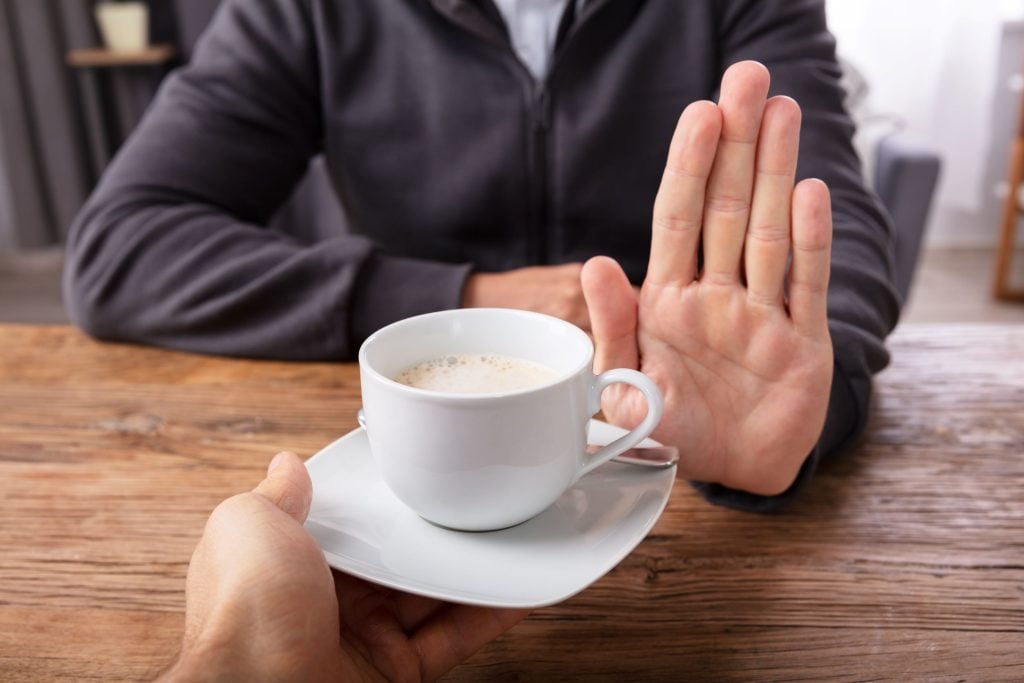So often, we reach a slump during the middle of the day or ‘hit the wall’; it’s not uncommon to feel our eyes getting heavy or too tired to divert our gaze when sitting at a desk, and we often declare that we are ‘sleep deprived’ during these periods. With a 2022 study revealing ‘64.0% of young people aged 17 to 23 years had a problem with sleep 3 or more times over the previous 7 nights’, it is apparent that problematic sleep is a prevalent issue. However, what defines sleep deprivation? Continue reading our blog for detailed insight into sleep deprivation, its contributing factors, and how to combat it.

Sleep deprivation is a ‘consistent lack of sleep or reduced quality of sleep‘. Sleep deprivation can be determined relative to your age, with different age groups requiring different amounts of sleep; those aged between 6 and 13 years old need 9-11 hours of sleep, whereas teenagers between the ages of 14 and 17 are recommended 8-10 hours and for adults aged 18 and over, 7-9 hours is recommended. Therefore, a consistent sub-standard sleep schedule will likely result in sleep deprivation.
These two terms are often associated with one another, and whilst they are closely related, Cleveland Clinic explains the difference, ‘Insomnia is when you’re unable to sleep when you try. Sleep deprivation is what happens when you don’t give yourself enough time to sleep, don’t get enough sleep or both.’
Of course, reduced sleep is the main contributory factor for the onset of sleep deprivation; however, the reasons why we can’t receive adequate sleep in the first instance are important to consider. For example, ‘poor sleep hygiene, lifestyle choices, work obligations, sleep disorders, and other medical conditions’ contribute to or cause sleep deprivation. In addition, from a medical stance, health conditions such as chronic fatigue syndrome, depression, anxiety, bipolar disorder, schizophrenia and obesity, among other health issues, can also cause sleep deprivation.
The implications of sleep deprivation vary from short-term and long-term impacts. Whereas the short-term effects of sleep deprivation commonly consist of ‘forgetfulness’, ‘distractability’, ‘decreased performance and alertness’, the long-term effects can result in ‘high blood pressure’, ‘heart attack’, ‘stroke’, ‘obesity’, ‘Psychiatric problems, including depression, anxiety and other mood disorders’ and an overall ‘poor quality of life’.
Sleep deprivation can be caused by lifestyle choices and can, therefore, be solved by change in some cases. Poor sleep hygiene encompasses many of the above factors; sleep hygiene ‘encompasses both environment and habits, and it can pave the way for higher-quality sleep and better overall health’. Essentially, sleep hygiene constitutes our day-to-day activities and lifestyle choices that we can influence.
Simple preventive measures can combat sleep deprivation and enhance your night’s sleep, including: ‘refraining from caffeine past noon or at least a few hours prior to bedtime’, ‘sticking to your bedtime schedule during weekends and holidays’ and ‘reducing alcohol intake’ to name a few.

A comfortable and supportive mattress can enhance your night’s sleep; however, an unsuitable or sub-standard mattress can cause ‘discomfort, making it more difficult to fall asleep and potentially leading to multiple nighttime awakenings‘. Regarding mattresses, it isn’t a case of one size fits all, and your sleeping position goes a long way to determining which mattress suits you. For example, adults who sleep on their side should opt for a soft, medium or medium firm mattress to ensure the sleeping surface cushions the hip and shoulder. In contrast, these mattress tensions are deemed unsuitable for front and back sleepers as sleeping in this position runs the risk of the spine sinking into the mattress and is unlikely to provide sufficient support. If you find yourself struggling to sleep at night or wake up in discomfort, evaluate your mattress. Our extensive range features mattresses for everyone and incorporates a variety of innovative and supportive features, such as pocket springs and memory foam, among others, at affordable prices.
It can become so easy to fall into a routine of working late and finding that our spare time is consumed by attempting to combat our work schedule. By the time we’ve finished for the evening, we’re likely to extend our evening and downtime, resulting in a reduced sleep window. Therefore, it’s worthwhile to be proactive and set boundaries that separate our work and social life to ‘preserve the full time you need for rest each night.’.
Please note that Mattressman are not healthcare professionals. If you’re struggling with your physical or mental health, please contact your GP.